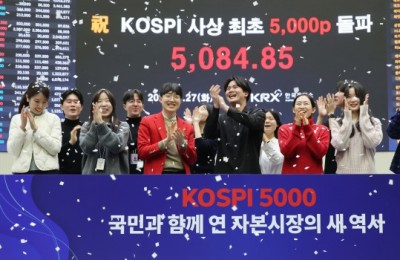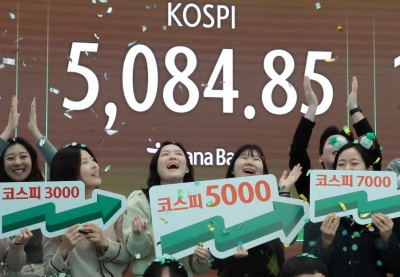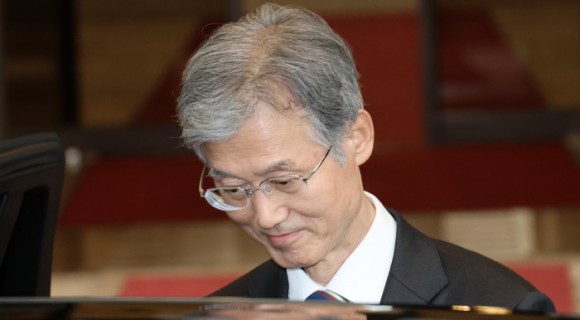The economy and financial markets
Before the Committee on Banking, Housing, and Urban Affairs, U.S. Senate
February 14, 2008
Chairman Dodd, Senator Shelby, and other members of the Committee, I am pleased to be here to offer my views on financial conditions, the near-term economic outlook, and related issues.
As you know, financial markets in the United States and in a number of other industrialized countries have been under considerable strain since late last summer. Heightened investor concerns about the credit quality of mortgages, especially subprime mortgages with adjustable interest rates, triggered the financial turmoil. However, other factors, including a broader retrenchment in the willingness of investors to bear risk, difficulties in valuing complex or illiquid financial products, uncertainties about the exposures of major financial institutions to credit losses, and concerns about the weaker outlook for the economy, have also roiled the financial markets in recent months.
As the concerns of investors increased, money center banks and other large financial institutions have come under significant pressure to take onto their own balance sheets the assets of some of the off-balance-sheet investment vehicles that they had sponsored. Bank balance sheets have swollen further as a consequence of the sharp reduction in investor willingness to buy securitized credits, which has forced banks to retain a substantially higher share of previously committed and new loans in their own portfolios. Banks have also reported large losses, reflecting marked declines in the market prices of mortgages and other assets that they hold. Recently, deterioration in the financial condition of some bond insurers has led some commercial and investment banks to take further markdowns and has added to strains in the financial markets.
The banking system has been highly profitable in recent years and entered this episode with strong capital positions. Some institutions have responded to their recent losses by raising additional capital. Notwithstanding these positive factors, the unexpected losses and the increased pressure on their balance sheets have prompted banks to become protective of their liquidity and balance sheet capacity and, thus, to become less willing to provide funding to other market participants, including other banks. Banks have also become more restrictive in their lending to firms and households. For example, in the latest Senior Loan Officer Opinion Survey conducted by the Federal Reserve, banks reported having further tightened their lending standards and terms for a broad range of loan types over the past three months. More-expensive and less-available credit seems likely to continue to be a source of restraint on economic growth.
In part as the result of the developments in financial markets, the outlook for the economy has worsened in recent months, and the downside risks to growth have increased. To date, the largest economic effects of the financial turmoil appear to have been on the housing market, which, as you know, has deteriorated significantly over the past two years or so. The virtual shutdown of the subprime mortgage market and a widening of spreads on jumbo mortgage loans have further reduced the demand for housing, while foreclosures are adding to the already-elevated inventory of unsold homes. Further cuts in homebuilding and in related activities are likely.
Conditions in the labor market have also softened. Payroll employment, after increasing about 95,000 per month on average in the fourth quarter, declined by an estimated 17,000 jobs in January. Employment in the construction and manufacturing sectors has continued to fall, while the pace of job gains in the services industries has slowed. The softer labor market, together with factors including higher energy prices, lower equity prices, and declining home values, seem likely to weigh on consumer spending in the near term. On the other hand, growth in U.S. exports should continue to provide some offset to the softening in domestic demand, and the recently approved fiscal package should help to support household and business spending during the second half of this year and into the first part of next year.
On the inflation front, a key development over the past year has been the steep run-up in the price of oil. Last year, food prices also increased exceptionally rapidly by recent standards, and the foreign exchange value of the dollar weakened. All told, over the four quarters of 2007, the price index for personal consumption expenditures (PCE) increased 3.4 percent, up from 1.9 percent during 2006. Excluding the prices of food and energy, PCE price inflation ran at a 2.1 percent rate in 2007, down a bit from 2006. To date, inflation expectations appear to have remained reasonably well anchored, but any tendency of inflation expectations to become unmoored or for the Fed's inflation-fighting credibility to be eroded could greatly complicate the task of sustaining price stability and reduce the central bank's policy flexibility to counter shortfalls in growth in the future. Accordingly, in the months ahead we will be closely monitoring inflation expectations and the inflation situation more generally.
To address these developments, the Federal Reserve has moved in two main areas. To help relieve the pressures in the interbank markets, the Federal Reserve--among other actions--recently introduced a term auction facility (TAF), through which prespecified amounts of discount window credit can be auctioned to eligible borrowers, and we have been working closely and cooperatively with other central banks to address market strains that could hamper the achievement of our broader economic objectives.
In the area of monetary policy, the Federal Open Market Committee (FOMC) has moved aggressively, cutting its target for the federal funds rate by a total of 225 basis points since September, including 125 basis points during January alone. As the FOMC noted in its most recent post-meeting statement, the intent of these actions is to help promote moderate growth over time and to mitigate the risks to economic activity.
A critical task for the Federal Reserve over the course of this year will be to assess whether the stance of monetary policy is properly calibrated to foster our mandated objectives of maximum employment and price stability and, in particular, whether the policy actions taken thus far are having their intended effects. Monetary policy works with a lag. Therefore, our policy stance must be determined in light of the medium-term forecast for real activity and inflation, as well as the risks to that forecast. At present, my baseline outlook involves a period of sluggish growth, followed by a somewhat stronger pace of growth starting later this year as the effects of monetary and fiscal stimulus begin to be felt. At the same time, overall consumer price inflation should moderate from its recent rates, and the public's longer-term inflation expectations should remain reasonably well anchored.
Although the baseline outlook envisions an improving picture, it is important to recognize that downside risks to growth remain, including the possibilities that the housing market or the labor market may deteriorate to an extent beyond that currently anticipated, or that credit conditions may tighten substantially further. The FOMC will be carefully evaluating incoming information bearing on the economic outlook and will act in a timely manner as needed to support growth and to provide adequate insurance against downside risks.
























